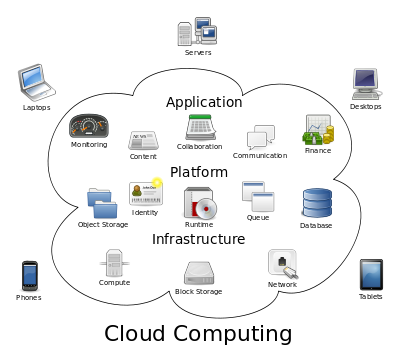Virtual Private Cloud Computing Vs Public Cloud Computing
3 min read

Cloud computing services are fast becoming universally recognized and accepted by virtue of their advantages such as scalability, enhanced security, cost saving etc. Every day the ranks of cloud clientele get augmented as more and more enterprises seek to reap the inherent benefits of cloud computing. To accommodate varying nature of business hierarchies and modules cloud computing services come in different flavors. Before opting for one of these flavors it’s absolutely imperative for an enterprise to comprehend how compatible each flavor’s unique services are with their objectives. In this article, I shall be comparing two most commonly available subcategories of cloud computing namely Virtual private cloud computing and public cloud computing.
Virtual Private Cloud Computing
Virtual private cloud is one of the most abundantly found cloud computing solution. The intrinsic flexibility of its paradigm makes it ideal for traditional enterprise IT requirements. Virtual private cloud has been adopted by industries, such as, finance and health care which have some of the most rigorous compliance requirements.
Salient Features of Private Cloud Computing
1) Enhanced Security Measures: For financially oriented enterprises, let’s say a bank or a mortgage company, the confidentiality and security of their critical data is of utmost importance. Virtual private cloud computing comes equipped with a customizable firewall and a plethora of security tools, which ensure maximum protection against unauthorized use, hacking and other such malicious attempts.
2) Dedicated Resources: The essence of private cloud is “no compromise”. As a subscriber to private cloud computing an enterprise has its own dedicated resources such as processor time and data buses which ensure optimum performance.
3) Greater customization: Private cloud services are acquiescent and customizable so they can be molded to suit the exact requirements of an enterprise. This in turns bestows the enterprise with more control over their data.
Drawbacks of Virtual Private cloud:
The enhanced security, customization and dedicated resources can be expensive for small businesses. For enterprises that don’t require high data security measures, this might not be the most appropriate and feasible solution.
Public Cloud Computing
Cost effective, “pay as you use” and simplicity are some of the most notable features of public cloud computing. It’s the easiest of cloud solutions to setup and maintain and is the preferred choice of most small scale and startup enterprises.
Salient Features of Public Cloud Computing
1) Cost Effective: A public cloud is the most simplest to setup as it liberates a subscriber from woes of hardware, application and bandwidth expenses. These are all taken care of by the service provider. There’s no ridged contract that would dictate a fixed amount to be paid, even for services that are a part of the package. Enterprises pay for only those condiments that they utilize.
2) Availability & Accessibility: Hiring public cloud services ensures that the enterprise truly transcends the physical and geographical confines. All of the data is hosted on remote servers easily accessible and available from any part of the globe.
Drawbacks of Public Cloud Computing
Public cloud solutions tend to be highly standardized and less flexible than their cousin virtual private cloud. There’s a possibility to run into a performance bottleneck as the resources on a public cloud server are shared and can be oversubscribed. Although public cloud solutions come equipped with security measures they can’t compare to those of private cloud. Public cloud computing is ideal for enterprises seeking inexpensive storage and computing resources.




